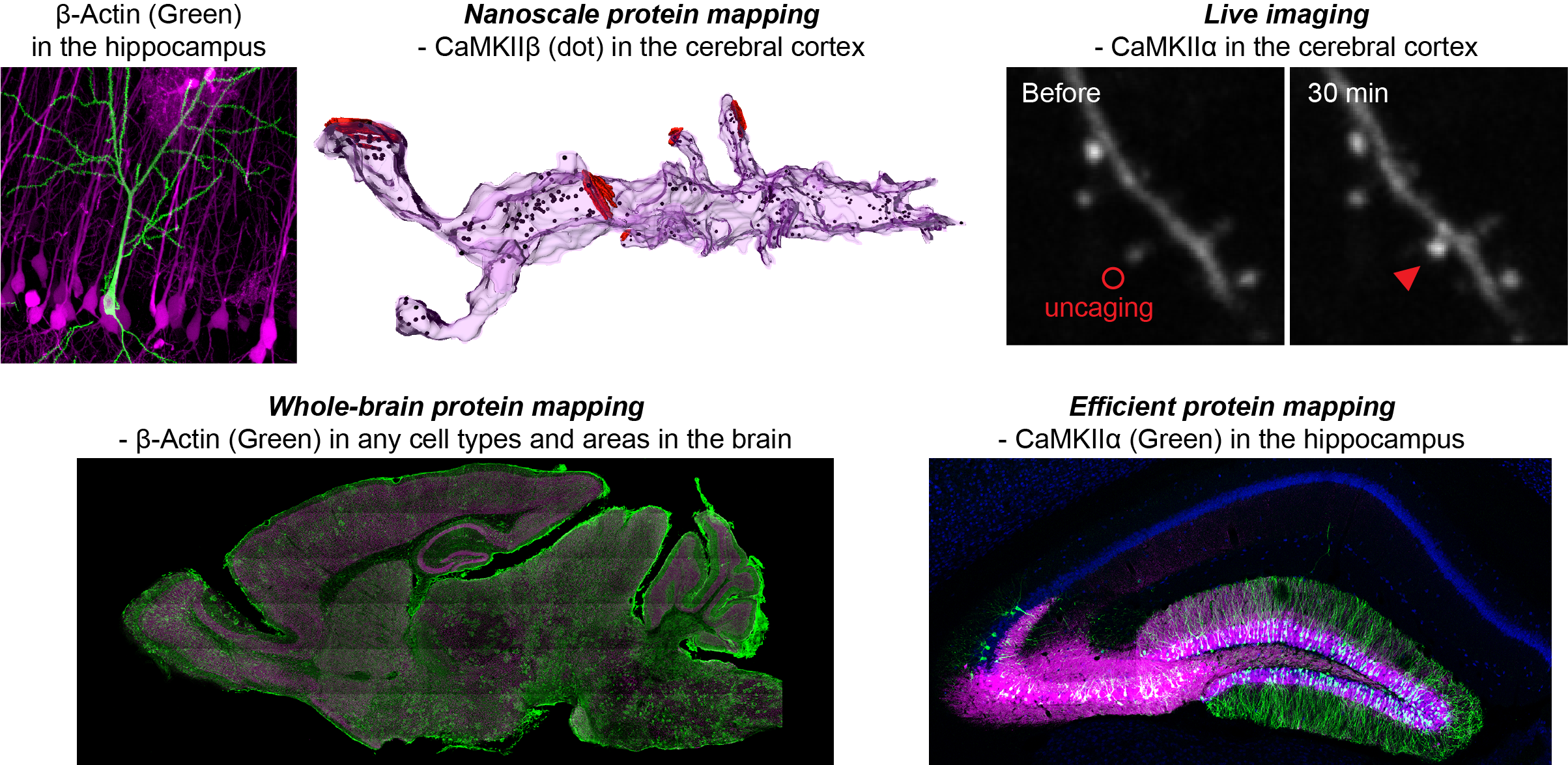Progress in science depends on new techniques, new discoveries and new ideas, probably in that order - Sydney Brenner
Our lab aims to understand the molecular, cellular and systems mechanism of learning and memory, and also the pathogenesis of neurodevelopmental disorders.
Toward this goal, we are developing new, original techniques. For example, we have already established in vivo genome editing methods that are useful for high-throughput, high-resolution mapping of protein localization and dynamics in the mammalian brain (Cell 2016, Neuron 2017, Nat Commun 2025a).
We are also using various cutting-edge technologies such as 2-photon microscopy, in vivo genome editing, optogenetics, electrophysiology, and molecular biology (Nat Commun 2025b).
Come and join us to do exciting science here!



Uchigashima M, Iguchi R, Fujii K, Shiku K, Kumar P, Liu X, Isogai M, Hoshino C, Abe M, Nozumi M, Okamura Y, Igarashi M, Sakimura K, Bise R, Lavis LD, Mikuni T. Single-cell synaptome mapping of endogenous protein subpopulations in mammalian brain.
Nature Communications. 2025;16(1):9705.
Liu X, Uchigashima M, Oomoto I, Saito Y, Uchida H, Oginezawa S, Masuda K, Satoh D, Abe M, Sakimura K, Shimizu Y, Murayama M, Tainaka K, Mikuni T. SeeThrough: a rationally designed skull clearing technique for in vivo brain imaging.
Nature Communications. 2025;16(1):7584.
Nishiyama J*, Mikuni T*†, Yasuda R†. Virus-mediated genome editing via homology-directed repair in mitotic and postmitotic cells in mammalian brain.
Neuron. 2017; 96(4):755-68.
*Co-first authors, †Corresponding authors
- Featured in Nat Rev Neurosci
Mikuni T*, Nishiyama J*, Sun Y, Kamasawa N, Yasuda R. High-throughput, high-resolution mapping of protein localization in mammalian brain by in vivo genome editing.
Cell. 2016; 165(7):1803-17.
- Selected as “Best of Cell 2016” paper
- Featured in Nat Rev Neurosci
Mikuni T, Uesaka N, Okuno H, Hirai H, Deisseroth K, Bito H, Kano M. Arc/Arg3.1 is a postsynaptic mediator of activity-dependent synapse elimination in the developing cerebellum.
Neuron. 2013; 78(6):1024-35.

Department of Cellular Neuropathology (Mikuni Lab)
Brain Research Institute
Niigata University
〒951-8585
1-757, Asahimachidori, Chuo-ku, Niigata 951-8585, Japan
(Center for Integrated Brain Science Building, Room 510 for staff / 511 for T.M.)
Phone: +81-25-227-0669 (staff) / 0926 (T.M.)
E-mail: tmikuni (at) bri.niigata-u.ac.jp


